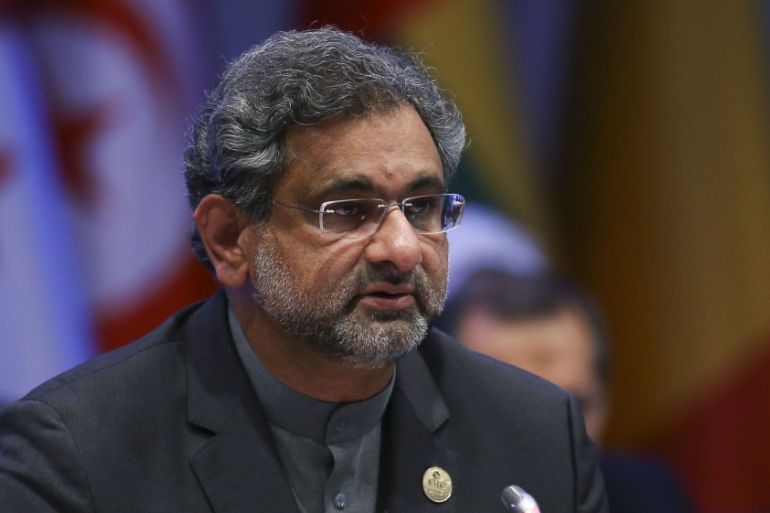Pakistan reaffirms commitment to nuclear deterrence
Policy aims to maintain nuclear weapons systems and warheads on the tactical, operational and strategic levels.

Islamabad, Pakistan – Pakistan’s military and civilian leadership has reaffirmed the country’s commitment to maintaining “full spectrum” nuclear deterrence and reiterated the robustness of its nuclear safeguards.
Pakistan’s National Command Authority (NCA), which oversees the country’s nuclear weapons programme, met for the first time in almost two years in Rawalpindi on Thursday.
“While expressing full confidence in Pakistan’s capability to address any form of aggression, the NCA reiterated Pakistan’s policy of developing and maintaining Full Spectrum Deterrence, in line with the policy of Credible Minimum Deterrence and avoidance of arms race,” said a joint statement from the country’s military and the prime minister’s office.
The meeting was the first held since Prime Minister Shahid Khaqan Abbasi took over in August this year. Also in attendance were Army Chief General Qamar Javed Bajwa, Chairman of the Joint Chiefs of Staff General Zubair Hayat and other members of the country’s top security leadership.
Full spectrum deterrence refers to a Pakistani nuclear policy where the country maintains nuclear weapons systems and warheads on the tactical, operational and strategic levels.
The policy was developed in response to a shift by regional rival India towards a more proactive conventional military stance, often dubbed “Cold Start”. Pakistan, in turn, developed tactical nuclear weapons, which are smaller warheads that can be deployed at short range.
The doctrine envisages the use of tactical nuclear weapons by Pakistan as a deterrent against any possible conventional incursion into Pakistani territory by Indian forces.
The Pakistani leadership “noted with concern” a conventional arms build-up by India, its deployment of nuclear weapons capable systems to the Indian Ocean and its development of a Ballistic Missile Shield system.
The NCA also noted Pakistan’s development of the Babur-III cruise missile and Ababeel ballistic missile, which is capable of carrying multiple nuclear warheads.
Response to US allegations
The statement on Thursday also made apparent reference to US President Donald Trump’s recently announced security strategy, where he called on Pakistan “to continue demonstrating that it is a responsible steward of its nuclear assets”.
“The NCA took a detailed review of the Nuclear Security Regime and expressed full confidence in command and control systems and security measures in-place to ensure comprehensive stewardship and security of strategic assets and materials,” said the Pakistani statement.
“It re-affirmed that, as a responsible nuclear State, Pakistan would continue to contribute meaningfully towards the global efforts to improve nuclear security and nuclear non-proliferation measures.”
Pakistan’s relations with the United States remain fraught, after Trump singled the country out for criticism during his announcement of a new South Asia strategy in August, accusing it of harbouring armed groups fighting US forces in Afghanistan.
A series of high-level visits by US officials have done little to dispel the tension.
On Thursday, Pakistan’s Foreign Office once again rejected the US “unfounded accusations” against Pakistan’s commitment to fighting armed groups.
“Pakistan has long been at the forefront in the fight against regional and global terrorism,” said FO spokesperson Mohammad Faisal at a regular press briefing. “It is because of Pakistan’s cooperation with the international community, acknowledged and appreciated by the US leadership, that the al-Qaeda core was decimated from the region.”
Follow Asad Hashim on Twitter: @AsadHashim